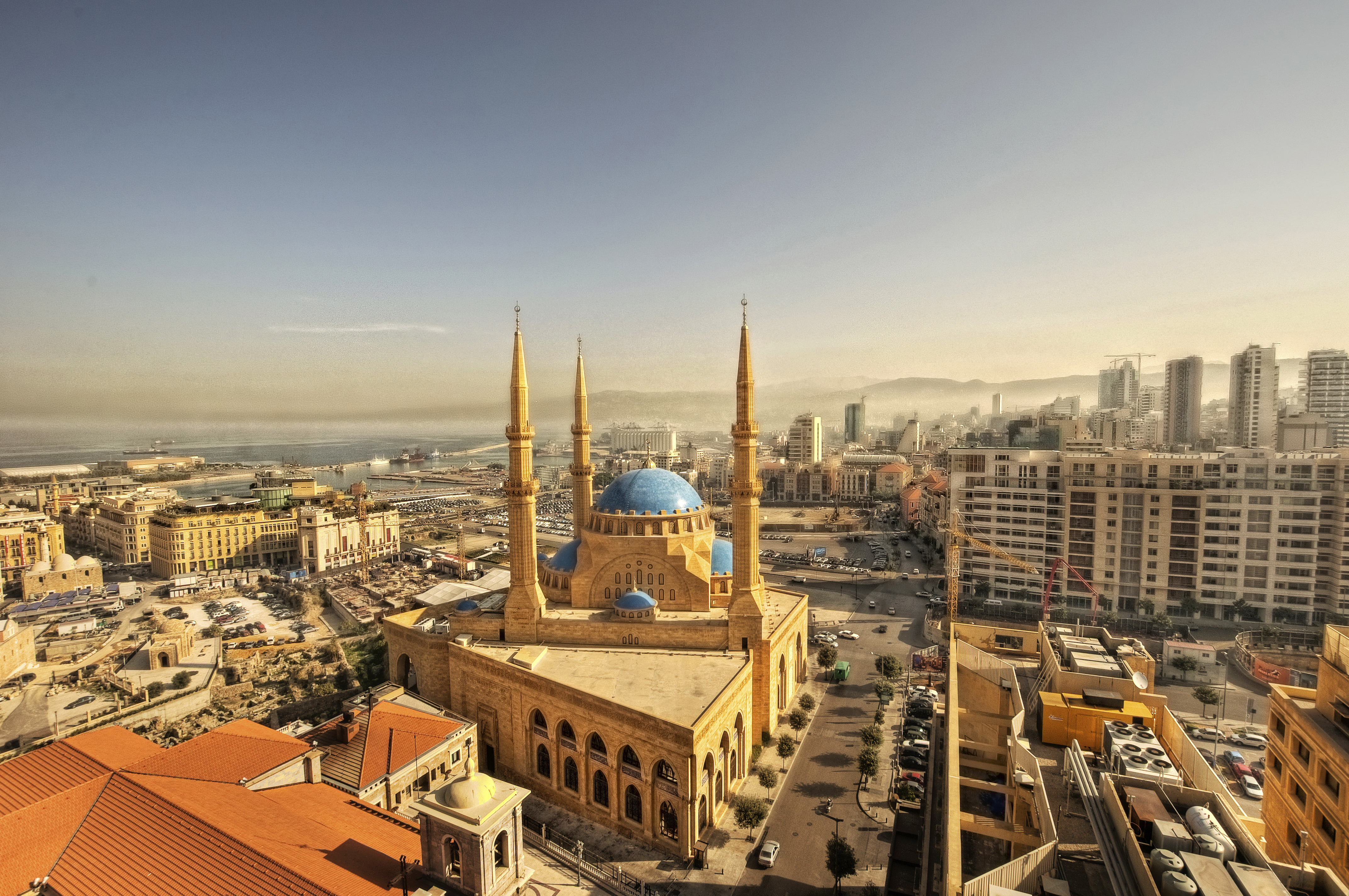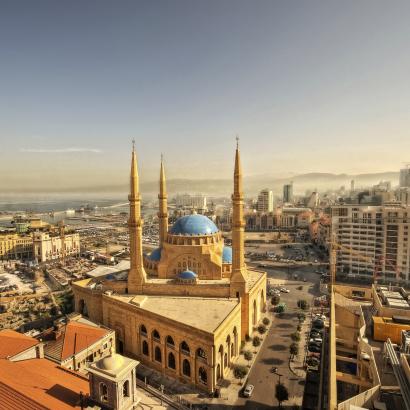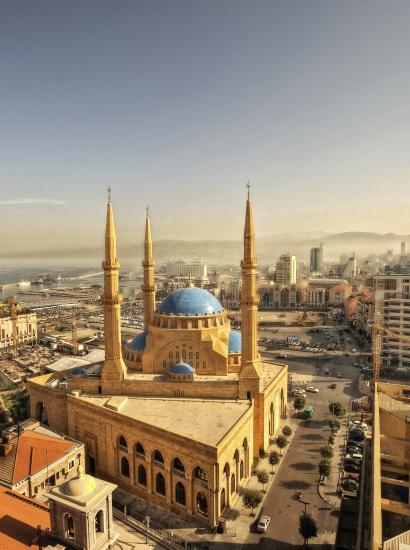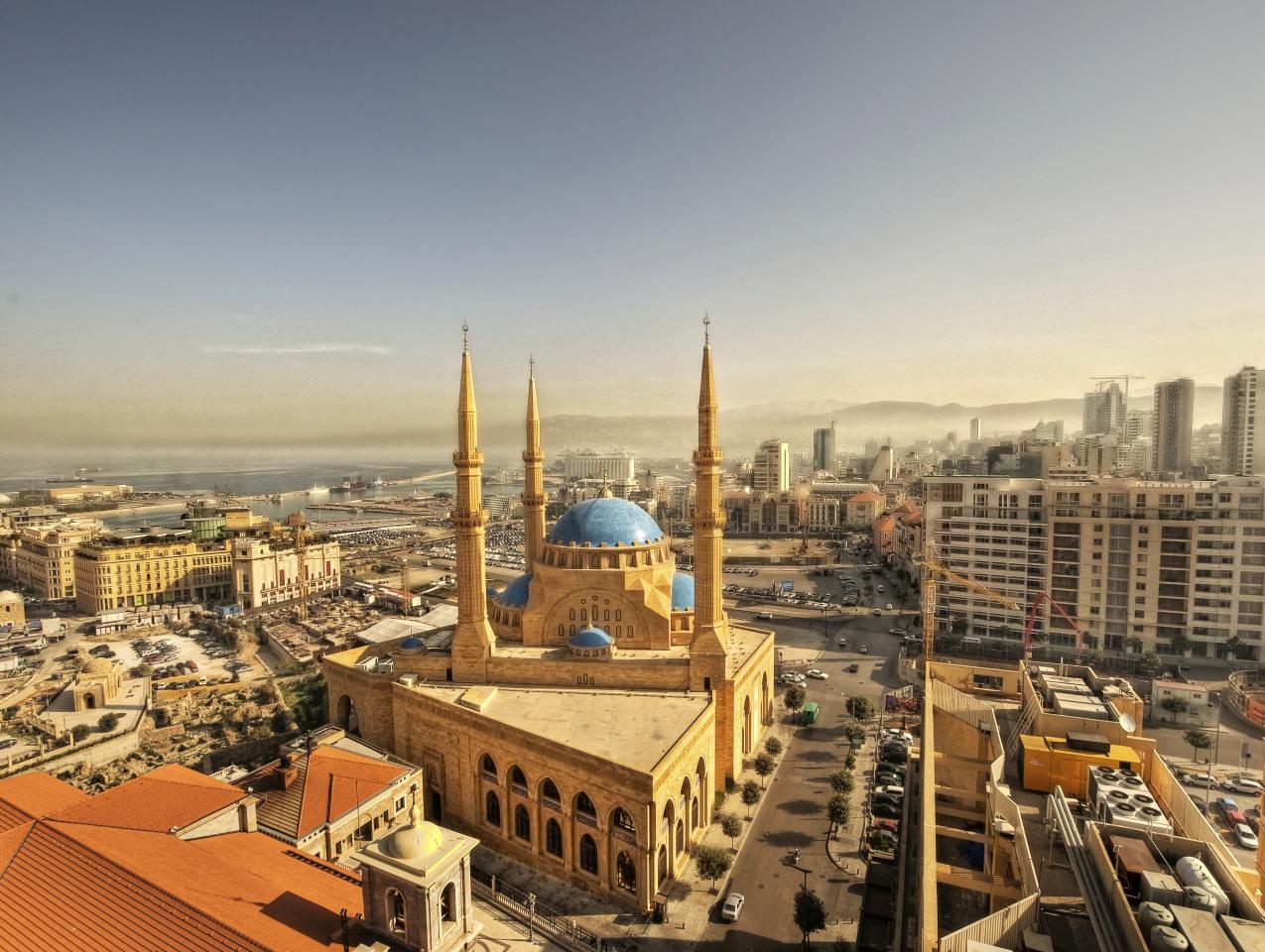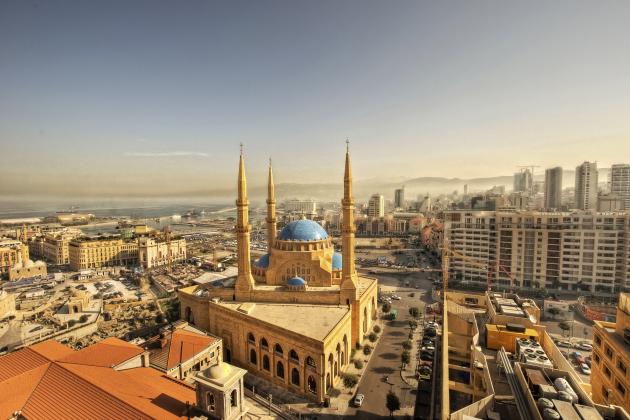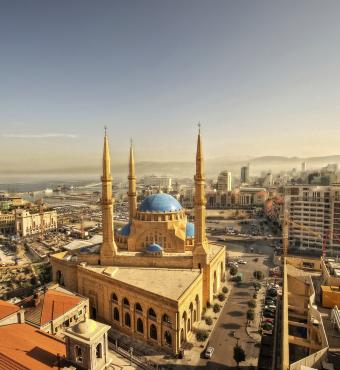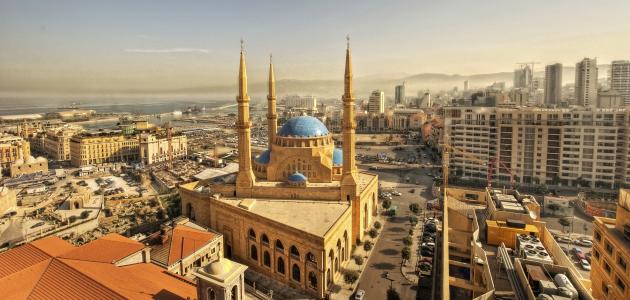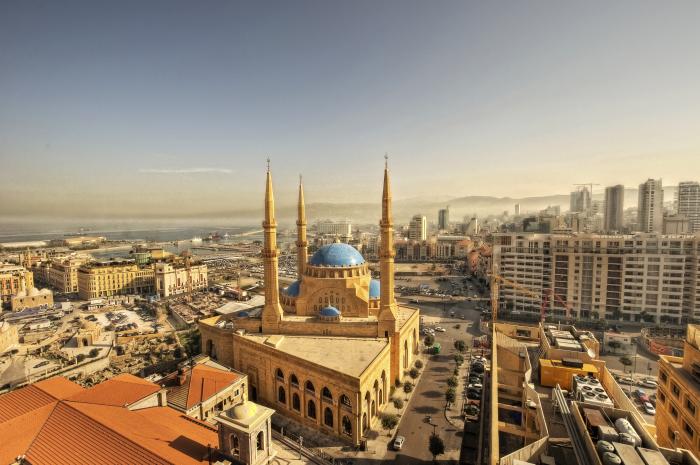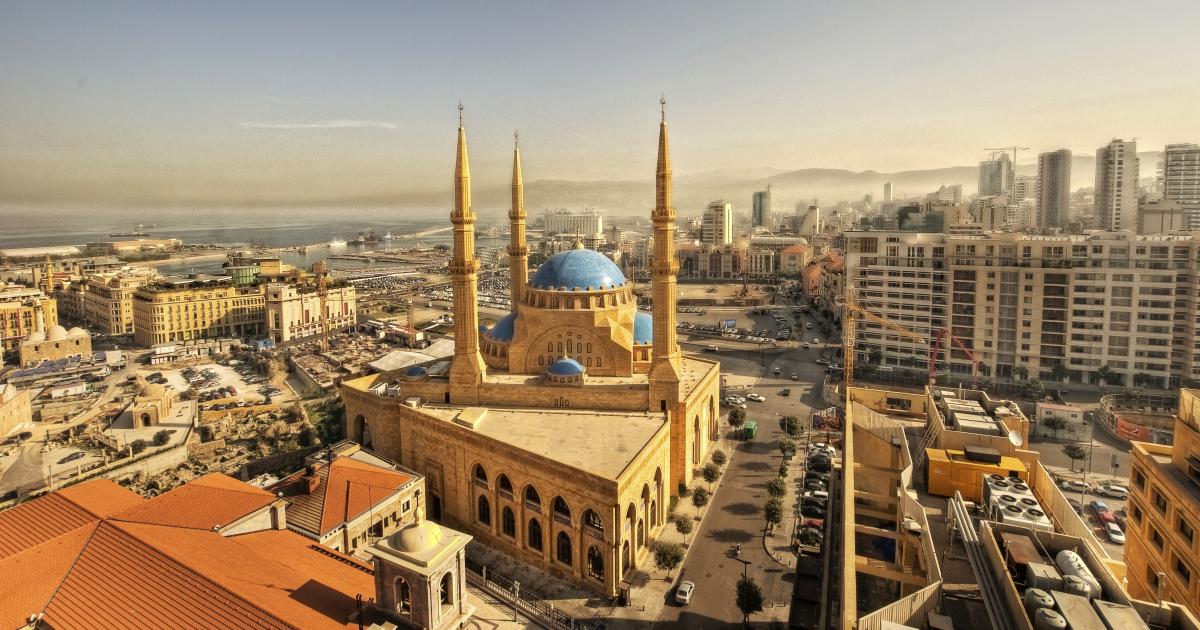It may be somewhat inconvenient for the secular Western mind to acknowledge the fact that ultimate identity on both the personal and group levels in a place like the Middle East remains conceived primarily in religious terms. If this is indeed a given, then it should hardly be surprising that religion and politics become intricately intertwined within and across both communities and states in the region.
When it comes to the interpenetration of religion and politics there is no better living laboratory to assess such a phenomenon than the little country of Lebanon where a curious mix of traditional clan ascendancies and associated sectarian identities dots the political landscape of convoluted Lebanese personal and communal relations. Looming menacingly in the background of today’s politico-sectarian configurations are the sharp religious divisions along Christian-Muslim lines that exacerbated the outbreak of the prolonged bloody conflict in Lebanon during the last quarter of the twentieth century from 1975 to 1990. In recent years, however, and without prior coordination, the two main rival Christian political groupings, namely the Free Patriotic Movement (FPM) led by former army general Michel Aoun (now President of the Republic) and the Lebanese Forces (LF) headed by Samir Geagea, have courted respective Shiite and Sunni allies within the complicated Lebanese political landscape. One beneficial outcome of such trans-religious alliances has been to eliminate the specter of renewed conflict between Christians and Muslims replacing it with the regionally prevalent Sunni-Shiite rivalry that had already made concrete inroads into the Lebanese arena.
The rapprochements therefore forged by the two overwhelmingly Christian FPM and LF parties respectively with Iran-supported Hezbollah and with Lebanese Sunnis patronized by Saudi Arabia have been mainly political in nature situating the two contending alignments along the two opposed sides of the regional Sunni-Shiite axis of rivalry. There exist no ideological affinities whatsoever between those Christians in Lebanon who have gravitated politically to the Hezbollah camp and Hezbollah’s version of radical Mahdist millenialism, nor between those Christians who lodged themselves within the opposing Sunni political grouping and anything remotely smacking of Saudi Wahhabism—since the assassination in February 2005 of Lebanon’s Prime Minister Rafiq Hariri, these political alliances driven by pure political expediency have gone under the respective names of March 8 and March 14, following mass public rallies held by each on those dates. The aim from the start on both sides has been to create a political balance in the country that would rectify any pendulum swings towards either the Iran-inspired Shiite pole represented on the ground by Hezbollah, or towards the Sunni end of the spectrum beholden for the most part to a Saudi political agenda.
In February 2006, a Memorandum of Understanding (MOU) was signed between Aoun’s FPM and Hezbollah. This was done at the time out of a mutual sense of specific political benefits accruing for each: the FPM would be in a better position to oppose mounting Sunni pressures aimed at politically marginalizing the country’s then largest Christian grouping, and Hezbollah felt a Christian political ally would bolster its standing internally in the face of what amounted to a Saudi-funded steamroller to enable the Sunnis to dominate Lebanese politics. A few months later in July, a war broke out between Hezbollah and Israel revealing one tangible benefit for Hezbollah from their MOU with their Christian partner: hundreds of thousands of Shiite civilians fleeing northwards from their ravaged villages in southern Lebanon found a hospitable and sympathetic reception in Christian areas, where monasteries and schools and in some cases private homes were made available to receive them until the dust of war had settled.
Much has changed since that instance of Christian-Shiite communal convergence in summer 2006, so that today two principal constraints have emerged that work to discourage Hezbollah from a repeat of any large-scale military adventure similar to that of 2006. After the 2006 war with Israel, Iran stepped in briskly with massive funds to reconstruct nearly all the stricken Shiite villages and the southern suburbs of Beirut destroyed by ground fighting or aerial bombardment; however, today it is clear that Iran is in no position financially to undertake anything close to such a comprehensive rehabilitation endeavor, should its Lebanese Shiite clients experience the scale of devastation that renewed all-out hostilities with Israel would produce. The second constraint on Hezbollah is that they are no longer able to rely on the good will of the country’s Christians to take in Shiite civilians in any great numbers, should war with Israel break out. Feelings among the Christian rank and file are far less tolerant of any widespread destruction in the country resulting from another Hezbollah-instigated confrontation with Israel, and Hezbollah knows that it has already lost considerable support among ordinary Christians even within the ranks of their MOU partner the FPM due to Hezbollah’s mounting obsessive fixation over the years on tackling Israel militarily at Lebanon’s expense.
This said, the many-layered complexities of Lebanon invariably provide any group with reasons for solace amidst the parting of ways with another group, leading often to the detection of a silver lining in the behavior of this other no matter the extent to which relations might be souring. A case in point is the tracking vigilance Hezbollah displayed that resulted in the successful preemptive military actions it took in summer 2017 in coordination with the Lebanese Army to eradicate the armed presence of ISIS (the Islamic State) terrorist pockets entrenched in northeastern Lebanon along the Syrian border. The vast majority of Lebanese including the Christians heaved a huge sigh of relief, while applauding this accomplishment and congratulating both Hezbollah and the Lebanese Army on a job well done. Similar vigilance continues to hunt down and nip in the bud any ISIS sleeper cells anywhere in the country. Who can argue with those who are willing to spill their blood to defeat the likes of ISIS?
The assertion is often repeated that Hezbollah dominate and pretty much run Lebanon. It is true that Hezbollah is militarily the strongest entity in Lebanon rivaling in terms of weaponry, training, and overall preparedness the capabilities of the Lebanese Army. But Lebanon is a delicate, perpetually self-adjusting polity as regards internal political equilibriums and alliances as well as overlapping sectarian agendas, and there are fixed limits to how freely Hezbollah can flex its muscles internally to press other political parties and indeed communities into compliance with their wishes. Moreover, Hezbollah is aware of these limits and carefully calibrates its actions to avoid exposing its home base, Lebanon, to unbearable strains and pressures that could cause the entire fragile edifice to snap. For instance, at no point are any of Hezbollah’s measures allowed to impinge even remotely upon the all-important areas of religious freedom or sectarian distinctiveness or communal pluralism. The trappings of the Qom-Karbala world and the way of life that Hezbollah embraces are strictly confined to Shiite villages and districts, never to spill over beyond those boundaries.
Since Aoun became president in 2016, the popularity of the FPM among Lebanon’s Christians has been steadily eroding in favor of the LF due in no small part to the FPM’s political proximity to Hezbollah. Since Lebanon’s May 2018 parliamentary elections, and despite the FPM’s garnering an impressive number of seats, the trajectory of its popular appeal has continued to decline, while that of the LF has been rising. Perceptions of endemic corruption have also contributed to this downward trend for the FPM. Moving forward this does not bode well for Hezbollah’s “Christian” political cover, as it were, given that at no previous time could the Shiite paramilitary organization have counted on anything approaching monolithic Christian support. There is an emerging sense among the Christians that the consolidation of Iran’s regional clout following the successes on the Syrian battlefield scored at the hands of Damascus regime forces bolstered by both Hezbollah and the Russians necessitates a readjustment of existing political balances and calculations inside Lebanon to offset any drastic pendulum swing in Tehran’s favor. This is rendered all the more urgent in light of the ongoing eclipse of Sunni/Saudi influence across the Levant.
Although the Christians experienced a diminishing of their overall political powers and standing after the Saudi-sponsored Ta’if Agreement of 1989 that ended the Lebanon war, they remain an indispensable third leg alongside Sunnis and Shiites in the communal tripod that constitutes the backbone of post-war Lebanese politics. And the fact that they are the only remaining indigenous Christians in the Middle East that have managed to preserve their freedoms on both the personal and communal levels makes of them the vital leaven when it comes to promoting the precious commodity of freedom in both their ancestral home of Lebanon and potentially in the surrounding Arab region beyond. For Hezbollah to begin to lose political support from Christian Lebanon is not something for which it could easily compensate.
Habib C. Malik is Associate Professor of History at the Lebanese American University (Byblos campus), and the son of the late Lebanese philosopher and statesman, Charles Malik.







